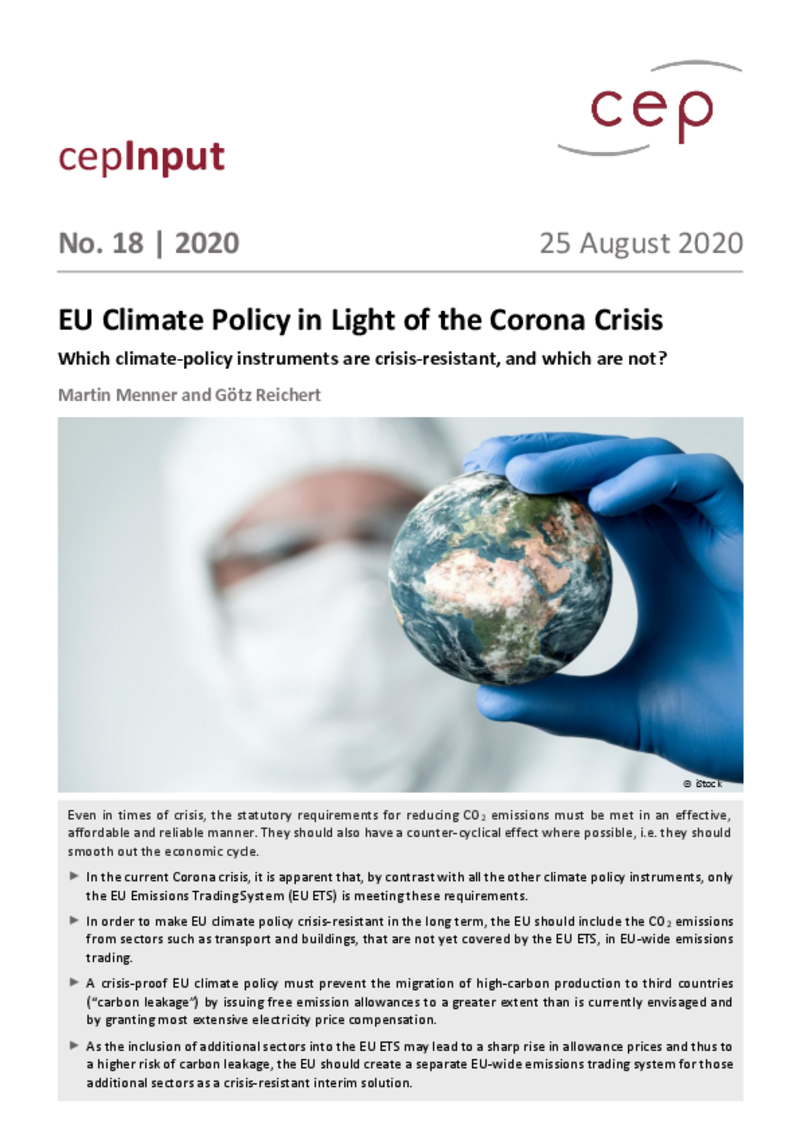
Climate
EU Climate Policy in Light of the Corona Crisis (cepInput)
cepInput
In cep's view, the legal requirements for reducing CO2 emissions must be achieved effectively, affordably and reliably even in times of crisis. In addition, they should have an anti-cyclical effect if possible and rather slow down an economic downturn. The current corona crisis shows that, in contrast to all other climate policy instruments, only the EU Emissions Trading Scheme (EU ETS) meets these requirements. In order to make EU climate policy crisis-resistant in the long term, the EU should in future transfer the CO2 emissions of sectors such as transport and buildings, which are not yet covered by the EU ETS, into an EU-wide emissions trading scheme. In addition, a crisis-resistant EU climate policy must prevent the migration of CO2-intensive production to third countries ("carbon leakage") by issuing free emission rights and granting most extensive electricity price compensation.
Download PDF
| cepInput (publ. 08.25.2020) | 428 KB | Download | |
 | |||



